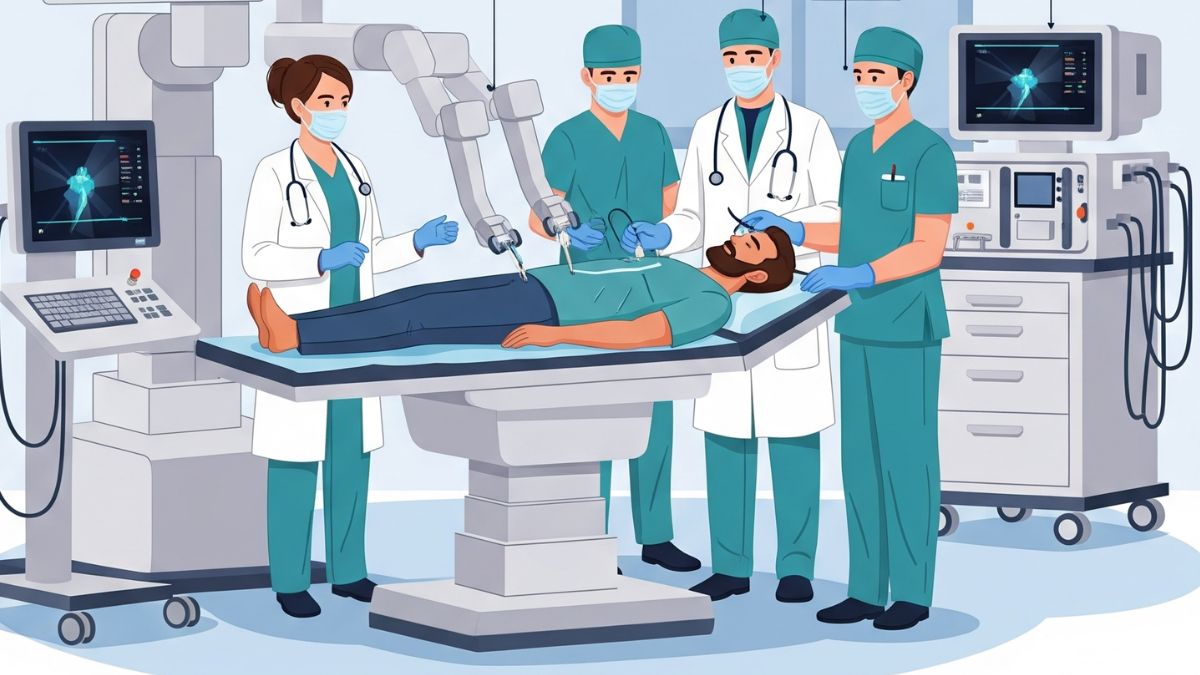Prostate Cancer: It's More Than Just Age - Understanding Your Genetic & Lifestyle Risks
)
Prostate cancer is a significant health concern for men, ranking as the fourth most common cancer in India. While age is a known risk factor, it's increasingly clear that genetics and lifestyle choices play a crucial role in determining a man's susceptibility to this disease. Early detection is key to successful treatment, and understanding your individual risk profile is the first step towards proactive health management.
Beyond the Numbers: Why Age Isn’t Everything
Traditionally, age has been the primary focus when discussing prostate cancer risk. The likelihood of developing the disease increases significantly with age, particularly after 50. However, this isn't the whole story. Research consistently demonstrates that genetics and lifestyle factors can dramatically influence a man’s chances, regardless of his age.
The Genetic Factor: Family History Matters
Having a family history of prostate cancer, especially in a father or brother, significantly elevates your risk. This suggests a genetic predisposition to the disease. While a specific “prostate cancer gene” hasn’t been definitively identified, scientists believe multiple genes are involved, influencing how the body processes hormones and responds to cancer development. If you have a strong family history, it’s even more important to be vigilant about screening and lifestyle modifications.
Lifestyle Choices: What You Can Control
The good news is that many lifestyle factors are within your control and can impact your prostate cancer risk. Here’s a breakdown of key areas:
- Diet: A diet high in processed foods, red meat, and saturated fats has been linked to an increased risk. Conversely, a diet rich in fruits, vegetables, and whole grains, particularly those containing lycopene (like tomatoes), may offer protective benefits.
- Exercise: Regular physical activity is associated with a lower risk of prostate cancer and improved overall health. Aim for at least 30 minutes of moderate-intensity exercise most days of the week.
- Obesity: Maintaining a healthy weight is crucial. Obesity is linked to an increased risk of aggressive prostate cancer.
- Smoking: Smoking has been linked to a higher risk of advanced prostate cancer and poorer outcomes. Quitting smoking is one of the best things you can do for your overall health.
- Alcohol Consumption: Moderate alcohol consumption may be associated with a slightly reduced risk, but excessive drinking should be avoided.
Symptoms and Early Detection: Don’t Wait for Problems
Prostate cancer often progresses without noticeable symptoms in its early stages. This is why regular screening is so important. Common symptoms, which may appear in later stages, can include:
- Frequent urination, especially at night
- Weak or interrupted urine flow
- Difficulty starting or stopping urination
- Blood in urine or semen
- Pain or stiffness in the lower back, hips, or thighs
Screening Recommendations: Talk to Your Doctor
The recommended screening age and frequency vary depending on individual risk factors. Generally, men should discuss screening options with their doctor starting around age 50. Men with a family history of prostate cancer or African-American men should consider starting screening earlier, around age 45.
Conclusion: Empowering Your Health
Prostate cancer is a complex disease, but understanding your risk factors – including age, genetics, and lifestyle – empowers you to take proactive steps towards protecting your health. Regular screening, combined with a healthy lifestyle, is your best defense against this disease. Consult with your healthcare provider to develop a personalized screening and prevention plan.





